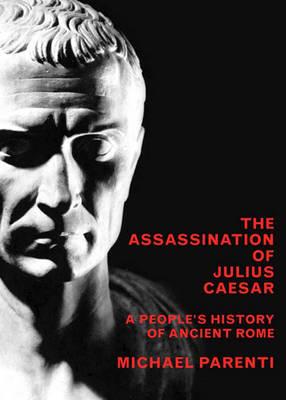Overview
Most historians, both ancient and modern, have viewed the Late Republic of Rome through the eyes of its rich nobility. In The Assassination of Julius Caesar, Michael Parenti presents us with a story of popular resistance against entrenched power and wealth. As he carefully weighs the evidence concerning the murder of Caesar, Parenti sketches in the background to the crime with fascinating detail about wider Roman society. In these pages we find reflections on the democratic struggle waged by Roman commoners, religious augury as an instrument of social control, the patriarchal oppression of women, and the political use of homophobic attacks. The Assassination of Julius Caesar offers a whole new perspective on an era we thought we knew well.
Full Product Details
Author: Michael Parenti
Publisher: The New Press
Imprint: The New Press
Dimensions:
Width: 15.20cm
, Height: 2.50cm
, Length: 22.90cm
Weight: 0.476kg
ISBN: 9781565847972
ISBN 10: 1565847970
Pages: 288
Publication Date: 01 August 2003
Audience:
General/trade
,
Professional and scholarly
,
College/higher education
,
General
,
Professional & Vocational
Format: Hardback
Publisher's Status: No Longer Our Product
Availability: Awaiting stock

The supplier is currently out of stock of this item. It will be ordered for you and placed on backorder. Once it does come back in stock, we will ship it out for you.
Reviews
Populist historian Parenti (To Kill a Nation, 2001, etc.) views ancient Rome's most famous assassination not as a tyrannicide but as a sanguinary scene in the never-ending drama of class warfare. His savagely entertaining brief begins with the Ides of March, 44 b.c., and returns to the details of the murder 170 pages later. The argument in between presents revisionist history at its most provocative. Employing the notion of gentlemen historians he advanced in History as Mystery (1999), Parenti writes as much about historiography as he does about historical events. Former and current patricians, the gentlemen historians are concerned with promoting the interests of their class, he contends, not in understanding the past. And so Parenti rips new ones for all those Roman heroes celebrated in Latin I and Ancient Civ-and in the GOP. Thus, Cicero is a self-enriching slaveholder, slumlord, and senator ; Cato the younger, a money-grubbing apologist for political assassination. Julius Caesar, by contrast, despite his well-chronicled failures (he owned slaves and despoiled distant lands), was interested in the public welfare and thus a danger to the fat cats who purred in his presence while privately sharpening their claws. The author, who confesses to having little Latin, girds his argument with numerous examples of Roman populists (e.g., Tiberius Gracchus, Lucius Appuleius Saturninus) whose flesh yielded oh-so-easily to assassins' knives when share-the-wealth proposals made jittery the monied and the propertied. Parenti's account of Caesar's murder and its aftermath is a highlight, and his primer on the political strategies exercised by the Roman rich is sobering; much sounds distressingly contemporary. Meanwhile, Shakespeare himself does not escape Parenti's scalpel: the Bard, he argues, picked the wrong side and forever labeled the naughty Brutus ( a usurer of the worst sort and a spoliator to boot ) as noble. This lively, lucid tract reminds us that historians gotta have attitude as well as game. (Kirkus Reviews)
Author Information
Michael Parenti is the author of sixteen books including History as Mystery, The Terrorism Trap, Democracy for the Few, Against Empire, Dirty Truths, Blackshirts and Reds, and America Besieged. His work has been translated into twelve languages. He lives in Berkeley, California.




